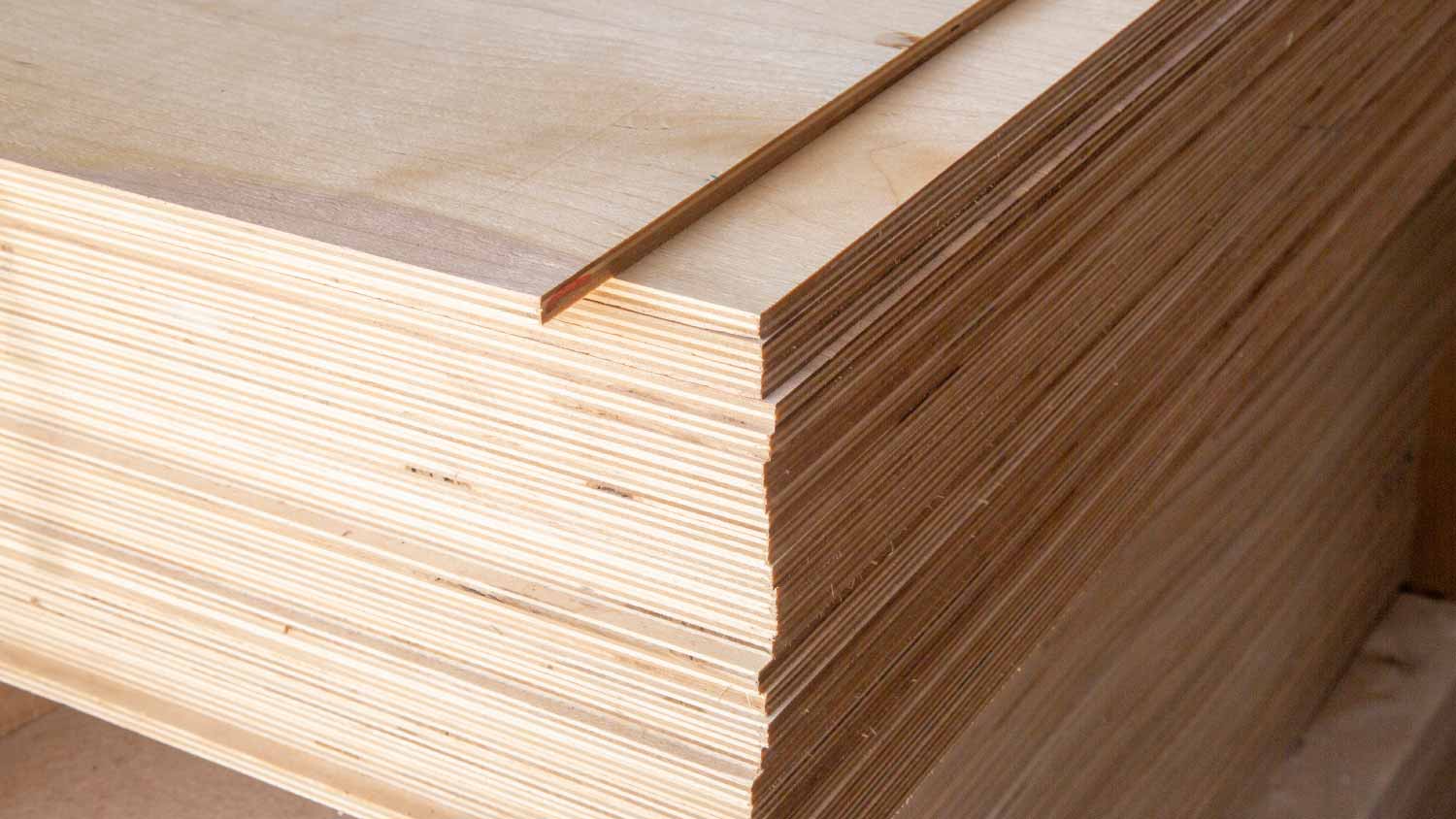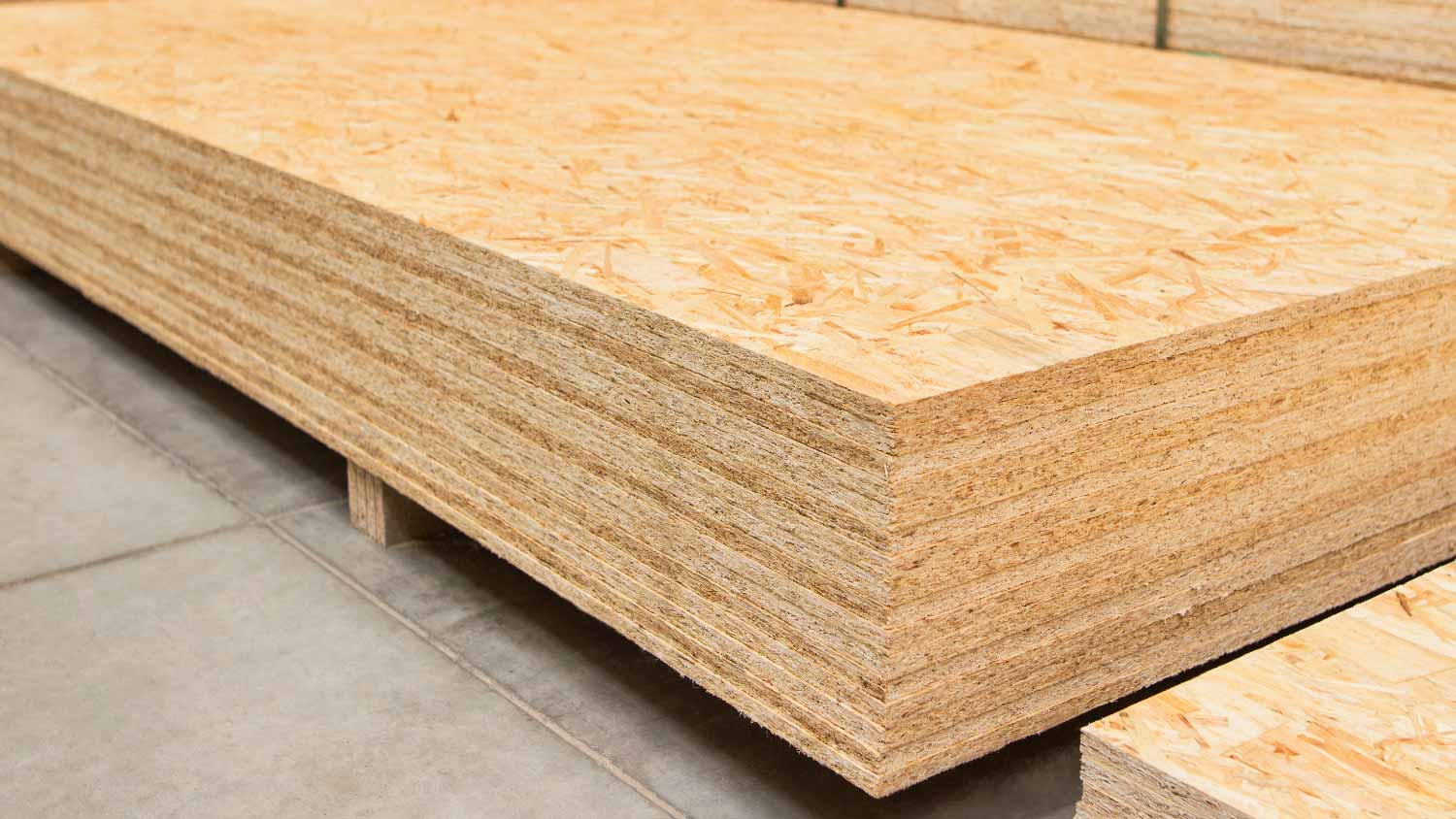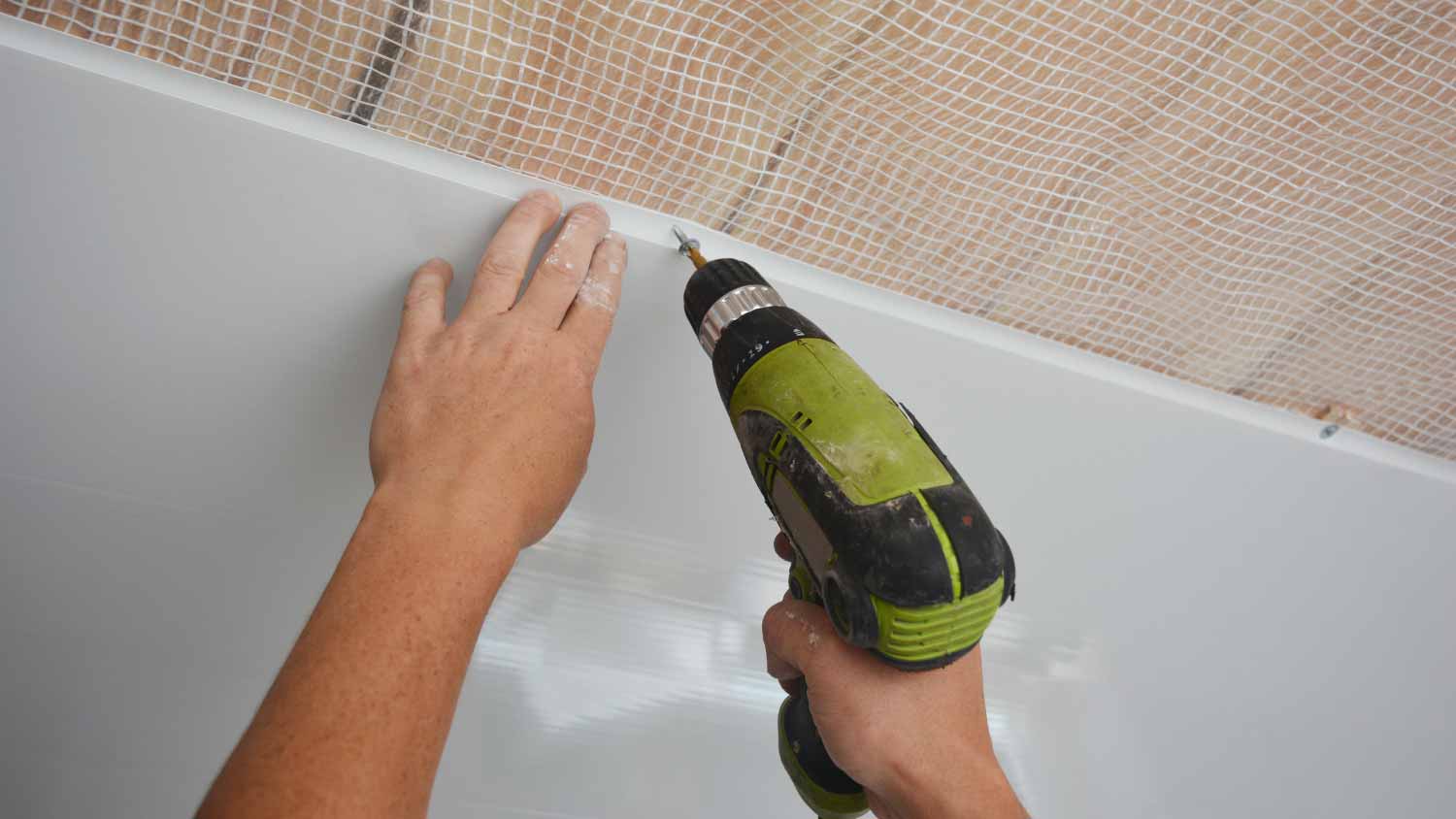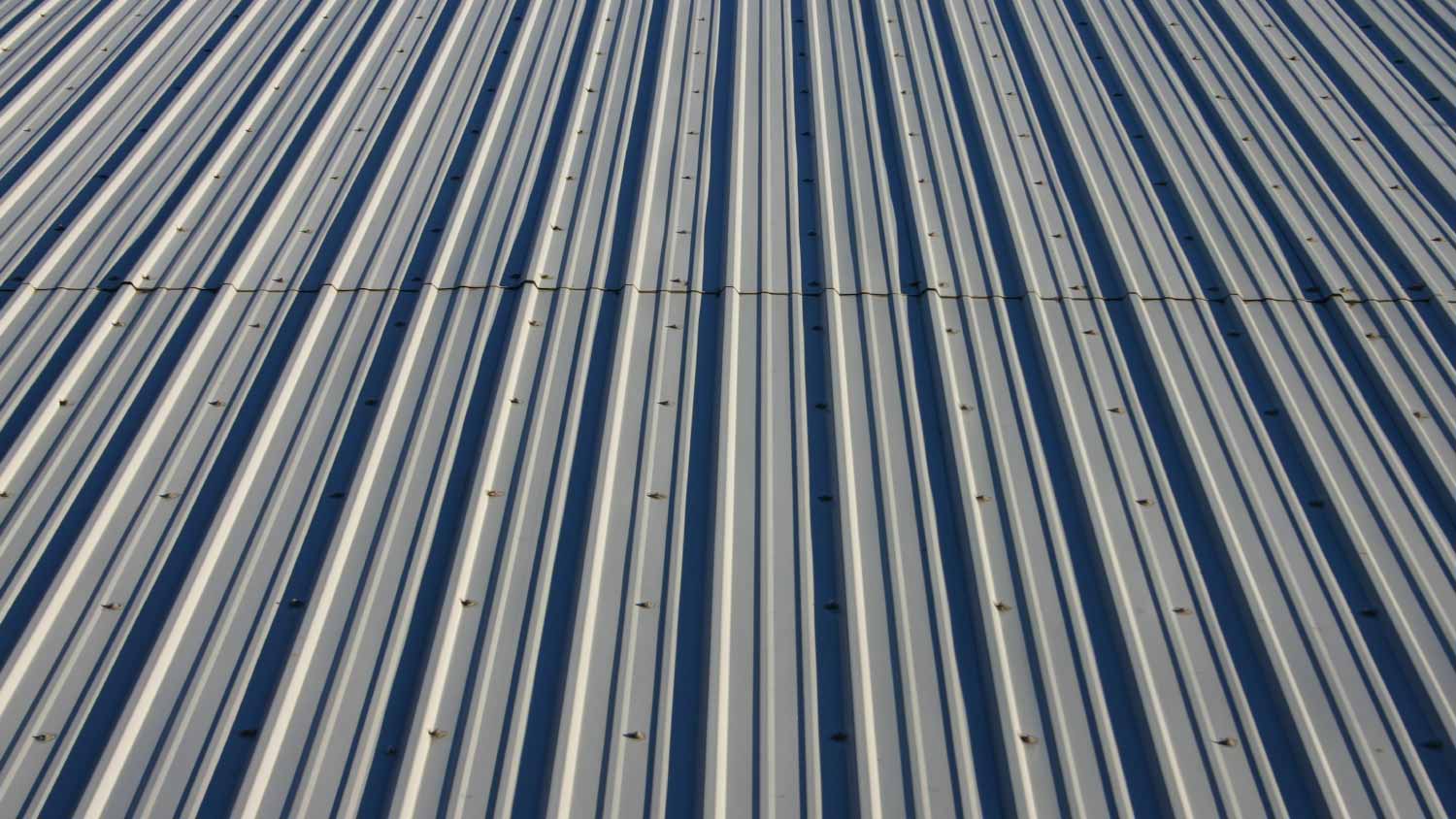5 Drywall Alternatives for Your Garage Walls
An alternative to drywall may be just what your garage walls need


If you’re building a new garage or remodeling an existing one, you’ll need to decide how to finish the walls. While drywall is an excellent choice for interior walls, it can present challenges in a garage setting—garage walls are exposed to impacts and moisture, especially if they’re not properly sealed or insulated.
Garages can be different rooms, such as a workspace, gym, or storage area, so depending on your goals, you may have different needs. If you choose one of these drywall alternatives for your garage, the walls can be more durable and require less maintenance or replacement.
1. Plywood

Drywall costs between $1.50 and $3 per square foot, but plywood offers an affordable drywall alternative that’s also durable, especially if you seal it after installation. It’s available in various thicknesses and materials, so you can make the best choice for your space and budget.
While you may hear the terms plywood and OSB used interchangeably, they’re two distinct products offering different advantages and drawbacks. Plywood is manufactured from long sheets of wood veneer that are cross-laminated and glued together for a smooth face and a durable panel. Choosing between drywall or plywood means looking closely at the pros and cons.
| Pros | Cons |
|---|---|
| Affordable | May delaminate in humid climates |
| Smooth surface | Off-gasses formaldehyde |
| Can be stained or painted any color | Requires sealing |
Best for: Garages that need a cost-effective alternative to drywall
2. OSB

Oriented strand board (OSB) is manufactured from small pieces of wood and an adhesive that binds them into sheets. The sheets are then cross-layered to increase strength. OSB is even more affordable than plywood, and you can paint it to match the garage design or seal it to protect against moisture. As an alternative to drywall, it offers impact resistance and won’t stain or discolor as easily as drywall can.
| Pros | Cons |
|---|---|
| Less expensive than plywood | May swell if exposed to moisture |
| Won’t delaminate | Rough appearance |
| Sustainable | Requires sealing |
Best for: Functional garages with a smaller budget
3. PVC Panels

PVC, or polyvinyl chloride, panels are a good choice for homeowners who want a simple drywall alternative in their garage. PVC panels interlock for easy installation, and slat panels can be integrated into the design to create areas for hanging tools or recreational equipment. They’re available in various colors and are pest- and moisture-resistant. To clean them, you can wipe them with soap and water and even power wash them.
| Pros | Cons |
|---|---|
| Moisture resistance | Low heat resistance |
| Easy to clean | May release chlorine gas |
| Lightweight | Less impact resistance |
Best for: Homeowners who want a low-maintenance drywall alternative
4. Fiber Cement Board

Fiber cement products are a mixture of cellulose fibers, sand, Portland cement, and water, forming flat sheets for roofing and siding. This durable material is a good choice for a drywall alternative because it’s moisture resistant and low-maintenance. Fiber cement is versatile—it can be smooth, textured, or formed into designs mimicking wood or stone and comes in various colors.
While fiber cement boards aren’t necessarily difficult to install, they’re heavier than other materials. Because they’re brittle, they may crack if not handled properly. They also create dust when cut, so wearing the proper protective gear is vital.
| Pros | Cons |
|---|---|
| Various styles and colors | More expensive to install |
| Moisture and fire-resistant | Can develop mold if exposed to moisture |
| Low-maintenance | Heavier than other materials |
Best for: A garage that benefits from a wood or stone look
5. Metal Panels

Metal roof panels will cost more than other materials, but you can install them on the walls of your garage for a low-maintenance and durable interior. The panels are lightweight, but be careful of the sharp edges during installation. They’re also moisture and pest resistant, and you can install them directly on the studs or over another sheathing material like plywood.
Metal panels come in a variety of styles. Basic corrugated metal is formed into valleys and ridges to create a wavy appearance. Ribbed metal roofing features prominent ribs at regular intervals that overlap during installation to create a better seal. Standing seam metal panels are the most expensive type, but they offer a more modern appearance and concealed fasteners.
| Pros | Cons |
|---|---|
| Moisture resistant | Can rust if the metal is exposed |
| Available in a wide range of colors | More expensive than other materials |
| Easy to install | Can have exposed fasteners |
Best for: Homeowners who want an easy-to-clean and durable material
Things to Consider When Choosing a Drywall Alternative
When you choose a drywall alternative for your garage, there are several factors to consider, depending on the materials you look at. For instance, deciding between OSB or drywall may mean sacrificing aesthetics but saving a significant amount of money.
Choosing PVC wall panels over drywall can result in higher moisture resistance and lower maintenance. You can also discuss your needs with a drywall contractor near you to get their take on the best material for your garage walls.
Here are a few factors to keep in mind:
Aesthetics: For many, a garage is more functional and doesn’t serve as an aesthetic part of the home. If you’re not worried about aesthetics, then OSB or plywood may be the best choice.
Moisture resistance: If your garage sees a lot of moisture, lean toward PVC wall panels that are highly moisture resistant.
Ease of maintenance: Wood materials, like OSB and plywood, need to be sealed periodically. Meanwhile, other materials, like PVC and metal panels, require almost no maintenance.
Cost: Metal panels, fiber cement board, and PVC panels will fall on the higher end of the cost range, while plywood and OSB will likely cost less than drywall. Consider the cost of each and how it will fit into the overall budget for your garage.





- 12 Alternatives to Drywall for Your Renovation
- PVC Wall Panels vs. Drywall: Which Is Better?
- What’s the Difference Between OSB vs. Drywall?
- 11 Drywall Alternatives for Your Basement
- Everything You Need to Know About Drywall Thickness and Size Options
- How To Build A Garage: Full Guide from Planning to Finish
- 5 Types of Drywall and the Use Cases for Each One
- What Is Drywall Made Of?
- 42 Garage Conversion Ideas to Make the Most of Your Space
- Should You Glue Drywall? Learn the Pros and Cons of Drywall Adhesive










